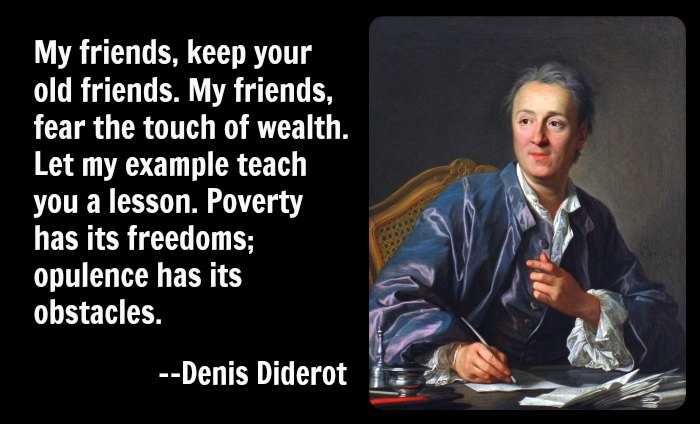B.A. (Journalism & Mass Communication) | Posted on | Entertainment
What is Diderot Effect and how is it linked with our shopping habits?
| Posted on
Diderot Effect is a phenomenon by which people buy consumer goods to create a feeling of accomplishment. Basically, it means that we buy things because we want to feel like we have accomplished something. This is why an object's price tag may affect its demand - the lower the price of an item, the more often an individual will want to buy it.
The Diderot Effect is considered as one of many factors affecting our shopping habits and should be taken into account when creating advertising campaigns. It has also been proven that people will choose high priced products knowing they are less likely to be satisfied with them than with cheaper products, which they're satisfied with just because they're cheaper.
0
0 Comment
Chef at Hotel Radisson | Posted on
Diderot was a nineteenth century Russian philosopher who went bankrupt and then was favored by then queen, Catherine. As the story goes, he bought a new red robe for himself and later, bought many other things to match the splendor of his robe. The buying of new robe turned into a trap and Diderot’s doom due to his materialistic addiction.
Diderot describes this in his essay Regrets for My Old Dressing Gown, the incident along with what later came to be known as “Diderot Effect” in philosophy, sociology, and psychology. It involves our identity which we tend to determine on the basis of goods we purchase; and how a slight deviation can allure us from entering into an inescapable chain of the whole new goods which will develop a new identity for us.
This will look familiar to you. Once you have bought a new dress, you would find yourself wanting matching shoes with that and other accessories too. This is just a small example, put forward to suggest a rather complex situation. Human needs are never-ending, as various philosophies suggest. Even Buddhism tells us to give up desire as it leads to destruction.

0
0 Comment
